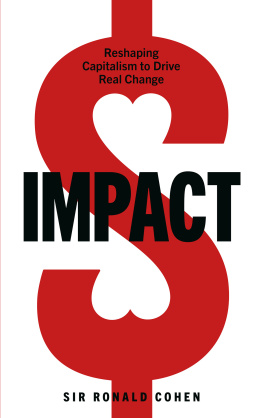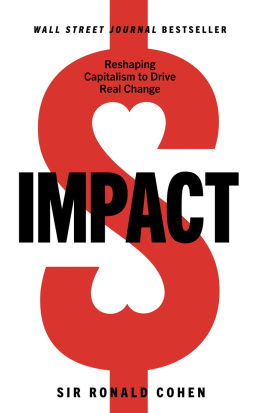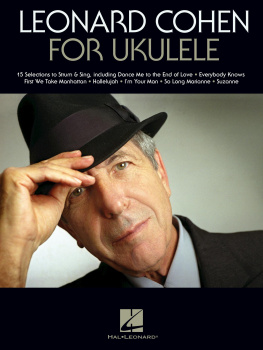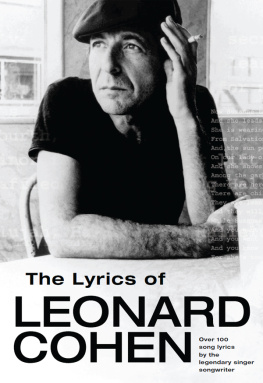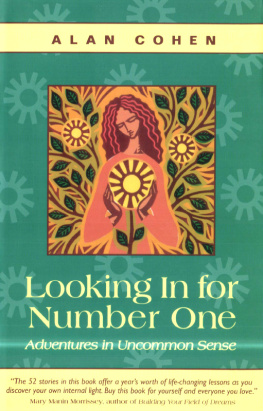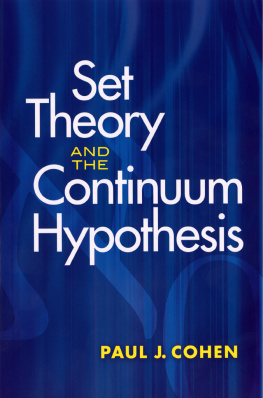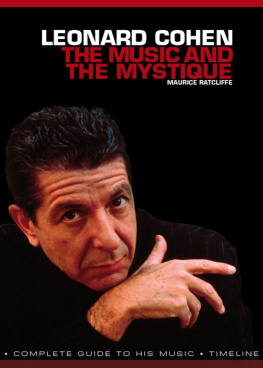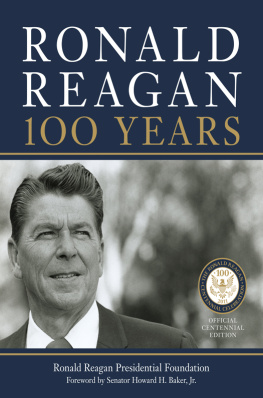Ronald Cohen - Impact
Here you can read online Ronald Cohen - Impact full text of the book (entire story) in english for free. Download pdf and epub, get meaning, cover and reviews about this ebook. publisher: Ebury Publishing, genre: Politics. Description of the work, (preface) as well as reviews are available. Best literature library LitArk.com created for fans of good reading and offers a wide selection of genres:
Romance novel
Science fiction
Adventure
Detective
Science
History
Home and family
Prose
Art
Politics
Computer
Non-fiction
Religion
Business
Children
Humor
Choose a favorite category and find really read worthwhile books. Enjoy immersion in the world of imagination, feel the emotions of the characters or learn something new for yourself, make an fascinating discovery.
- Book:Impact
- Author:
- Publisher:Ebury Publishing
- Genre:
- Rating:5 / 5
- Favourites:Add to favourites
- Your mark:
- 100
- 1
- 2
- 3
- 4
- 5
Impact: summary, description and annotation
We offer to read an annotation, description, summary or preface (depends on what the author of the book "Impact" wrote himself). If you haven't found the necessary information about the book — write in the comments, we will try to find it.
Impact — read online for free the complete book (whole text) full work
Below is the text of the book, divided by pages. System saving the place of the last page read, allows you to conveniently read the book "Impact" online for free, without having to search again every time where you left off. Put a bookmark, and you can go to the page where you finished reading at any time.
Font size:
Interval:
Bookmark:



Sir Ronald Cohen is a pioneering philanthropist, venture capitalist, private equity investor and social innovator, who is driving forward the global Impact Revolution.
He serves as Chairman of the Global Steering Group for Impact Investment and The Portland Trust. He is a co-founder of Social Finance UK, USA and Israel; and co-founder Chair of Bridges Fund Management and Big Society Capital. He chaired the G8 Social Impact Investment Taskforce (2013 15), the UK Social Investment Task Force (200010) and the UKs Commission on Unclaimed Assets (2005-2007). In 2012 he received the Rockefeller Foundations Innovation Award for Social Finance.
He was the co-founder and Executive Chairman of Apax Partners Worldwide LLP (1972-2005), a global private equity firm, and co-founder and Chairman of the British Venture Capital Association. He is former director of the Harvard Management Company, and a former member of the Harvard University Board of Overseers and of the University of Oxford Investment Committee.
Oxford and Harvard educated, Sir Ronald was born in Egypt and left as a refugee at the age of 11, when his family came to the UK. He is based in Tel Aviv, London and New York.
Other books by the author
The Second Bounce of the Ball
ON IMPACT: A Guide to the Impact Revolution
This book is dedicated to my dearest partners in this revolution, my wife, Sharon, our daughter and son-in-law, Tamara and Or, and our son, Jonny.
My warmest thanks go to my pioneering colleagues on the Social Investment Taskforce (20002010), at Bridges Fund Management (2002-), on the Commission for Unclaimed Assets (200507), at Social Finance worldwide (2007-), at Big Society Capital (201219), on the G8 Taskforce for Social Impact Investment (201314), at the Global Steering Group for Impact Investment (2015-), at the Impact Management Project (2016-) and at the Impact-Weighted Accounts Initiative (2019-). You are valiant comrades-in-arms, and it is thanks to your leadership, effort and vision that the Impact Revolution is here.
I also want to thank most warmly, my close colleague in researching this book, Yaelle Ester Ben-David, for her unflinching determination and steadfast support.
Dear Reader,
As this book goes to print, our economies are in lockdown because of the Corona virus. Huge sectors of our economies have come to a sudden stop, unemployment is rising to levels unseen since the Great Depression and stock markets have crashed. The strains on our economic and financial systems are likely to be orders of magnitude greater than those we experienced during the crash of 2008.
Across the world, the people worst hit, once again, will be the most vulnerable in our societies.
I hope the new thinking revealed in these pages will lead our governments to direct their massive economic measures in such a way that it creates the maximum positive social impact. Social justice must dictate our economic response to this grave crisis, so that we do not emerge from it with even greater pain, inequality and violent rebellion against the inequity of our system.

Nearly 20 years ago, I gave a speech at an event to celebrate the thirtieth anniversary of Apax Partners, the venture capital and private equity firm I co-founded and led for so many years. I warned then that if we did not tackle the needs of those left behind more effectively, a curtain of fire would soon separate the rich from the poor in our cities, countries and continents. We have recently seen this curtain rise in countries such as France, Lebanon and Chile, which have suffered violent protests, while in the UK rising inequality was a factor in the decision taken in the referendum of June 2016 to leave the EU.
Today, the gap between rich and poor has widened massively. Inequality is causing huge migration from poorer countries, especially in Africa, to richer countries in Europe, with people risking their lives to cross the sea in flimsy rubber boats in search of better lives. The challenges arising from absorbing these immigrants are exacerbating the inequalities that already exist in the host countries.
I am writing this book because I can see that a solution is within our grasp; I call it the Impact Revolution. Fueled by impact investment, it will allow us to address the dangerous inequality and degradation of our planet, and will lead us to a new and better world.
The journey that led me to write this book began in 1998, when I took the decision that seven years later, at the age of 60, I would leave Apax in order to tackle social issues and try to help resolve the conflict in the Middle East. I did not want my epitaph to read, He delivered a 30 per cent annual return on investment Id always known that life should have a greater purpose.
When I was 11, my family and I were forced to leave Egypt and were lucky enough to be accepted by the UK as refugees. We arrived with just one suitcase each, me clutching my stamp collection under my arm, fearing that it would be taken away from me. We were made welcome in our new home and started to rebuild our lives in London.
I received several breaks in life, including a first-class education at Oxford and then at Harvard, where I discovered venture capital just as it was emerging. I received a Henry Fellowship, which paid for my first year at Harvard Business School but required me to bring something of value back to the UK after my studies. I ended up bringing back venture capital, for which I was knighted in 2001.
Giving back is an important aspect of my values. Just as I was helped when I was in need, I want to help others. Part of the reason I became a venture capitalist was that I knew it would enable me to help to create jobs at a time of high unemployment. As I saw social problems spreading during the 1980s and 1990s, I remained motivated to make a difference. I hoped that by leaving Apax at the age of 60, I could devote 20 years to these issues and have a chance to make a real difference.
I co-founded Apax when I was 26 and built it into a global private equity firm with offices across the world, and it now manages more than $50 billion.
Throughout my career, I have played many different roles: as an entrepreneur, as an investor, as a philanthropist and as an advisor to governments. Each of these roles has given me the opportunity to view the world from a different perspective. These experiences have led me to understand why capitalism is no longer answering the needs of our planet, and that there is a new way forward. In this book, I propose a new solution that we can each put into action.
Things cannot continue as they are. As inequality surges in developed and developing countries alike, social tensions rise and those who have been left behind feel that they will be permanently stuck there. Our system does not seem fair to them, and so they rebel against it.
At the same time, environmental challenges threaten the quality of life on the planet and possibly its very existence. Our current economic system cannot correct this threat: governments do not have the means to cope with our human-made social and environmental problems, nor are they well placed to develop innovative approaches to tackling them, a process that inevitably involves risky investment, experimentation and occasional failure.
Next pageFont size:
Interval:
Bookmark:
Similar books «Impact»
Look at similar books to Impact. We have selected literature similar in name and meaning in the hope of providing readers with more options to find new, interesting, not yet read works.
Discussion, reviews of the book Impact and just readers' own opinions. Leave your comments, write what you think about the work, its meaning or the main characters. Specify what exactly you liked and what you didn't like, and why you think so.

